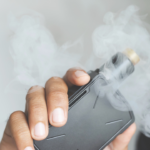The murder of a Mpumalanga doctor on duty has exposed the lax security at public hospitals.
Hundreds of outraged doctors, nurses and other health workers handed over a memorandum addressed to President Jacob Zuma at the Union Buildings in Pretoria this week. They marched nationwide to protest against the “killing, raping and mugging” of health workers in public health facilities.
The Junior Doctors’ Association of South Africa (Judasa) declared June 15 a “national day of mourning”. Dr Senzosenkosi Mkhize was killed at Middelburg Hospital in Mpumalanga earlier this month. The 27-year-old doctor was stabbed to death — allegedly by a mentally ill patient whom hospital staff members said had repeatedly “harassed” them in recent months, with “no action” taken by the facility’s management.
“If a politician got raped or killed at the Union Buildings or in Parliament, not only would they call in the army to beef up already tight security, but they would declare it a national crisis,” Judasa said in a press release. “But whenever nurses or doctors fall prey to the same fate, only task teams are formed and fruitless investigations take place.”
In the Durban suburb of Yellowwood, Mkhize’s father, Zamokuhle, watched coverage of the health workers’ protest on television.
“Senzosenkosi wanted to become a specialist surgeon and was going to start working on this when he finished his community service in January next year. But now this dream is dead,” he said.
Zamokuhle said he had battled to pay for his son’s medical degree at Stellenbosch University. He said: “It takes so much time and resources to groom a doctor. In South Africa they’re so scarce, especially good black doctors. When we lose one, everyone suffers.”
In recent years, said nursing union Democratic Nursing Organisation of South Africa (Denosa), “many” nurses had been attacked at Middelburg Hospital and “nothing” had been done about it. Only this past weekend a patient threatened to rape and kill a nurse, said Dr Tende Mafokane from Judasa.
Throughout South Africa health workers report a variety of atrocities committed against colleagues. From nurses being stabbed to death at the Kanyamazane Clinic near Mbombela to medical students being raped in Johannesburg and nurses being shot dead at Seshego Hospital in Polokwane, the list of crimes committed against South African medical practitioners is growing.
Yet, Judasa said, government, like most hospital authorities, is failing to heed health workers’ appeals for protection.
“We have repeatedly urged the department of health to install metal detectors at every hospital entrance point so that the public do not access hospital property armed with dangerous weapons,” Judasa said. “But, instead, all we have seen in public hospitals is security guards stopping short of strip-searching health workers as they enter and leave hospital premises while the public accesses hospitals without any scrutiny.”
Denosa spokesperson Asanda Fonqo said nurses are increasingly “fearful”. “Hospitals and clinics are places where people are supposed to be healed, not killed. But how can you be expected to concentrate on saving other people’s lives if your own life is not safe?” he asked.
Mpumalanga nurse Nono Ntutu* said she no longer had “any faith” that the state would help her. “In 2005 a patient beat me up badly,” she said. Ntutu laid a charge at a local police station. What followed, she said, was in some respects “worse” than the crime that had been committed against her.
“The police immediately knew who the woman was as her father was a senior ANC official. I didn’t want to drop the case but received numerous threatening phone calls from ANC and government officials that forced me to do so.”
Fearing further victimisation, Ntutu asked the Mail & Guardian not to reveal the name of the ANC official.
After the incident, Ntutu wanted counselling, but the clinic refused to pay for it. “My life is so, so cheap — In fact, I still feel like this — cheap,” she said. Ntutu also marched on Wednesday, but conceded she did so out of a “sense of duty, not because I think things are going to change”.
At the forefront of this week’s protest was Dr Phophi Ramathuba of the South African Medical Association (Sama). “The type of security that the government provides for health workers is simply ineffective.”
Security
The tender processes are open to corruption and the companies appointed are ones that you’ve never heard of,” she said. “Security guards don’t have guns, so they run away in dangerous situations. They’re usually also poorly qualified and don’t get paid properly.”
Ramathuba demanded that the health department “standardise” security and “phase out” private security. “We know the health department doesn’t have the capacity to provide security itself, but the department of safety and security does. We believe it should employ security guards with proper training and employment contracts so that the same level of security is provided at all public health facilities.”
But health ministry spokesperson Fidel Hadebe defended his department. “It is wrong to suggest that nothing is being done about safety in hospitals. Government recently published a Bill on health standards compliance which will enforce a set of six standards, including safety and security in healthcare facilities,” he said.
However, Hadebe agreed with Ramathuba that there is an urgent need for “norms and standards” for security at hospitals. “In some hospitals you would have metal detectors, in others not — Perhaps what is required is some tightening up [of security],” Hadebe said.
But Ramathuba said “far more” than this is required. “The problem spans further than hospitals only. The residential areas where doctors stay are as unsafe as the hospitals themselves.”
She has plenty of evidence to prove this, she said. For example, in March last year, Dr Antoinette Masenya of Johannesburg’s Helen Joseph hospital arrived home to find her apartment on the hospital premises had been “plundered”. Her front door and security gate were broken beyond repair. “I was terrified to sleep in an apartment with an open door but hospital management said they could not have it fixed immediately. They suggested that I find alternative accommodation. They said they’d get one of the hospital security guards to watch my flat for the night,” she said.
Masenya booked into a nearby hotel, paying the bill herself. She returned the following day — only to find her flat in a “much worse” condition. “Far more stuff had been stolen. There wasn’t a security guard in sight,” Masenya said.
A month later, she claimed, her door and security gate had still not been repaired. After another 24-hour shift on another night, her apartment was burgled again. She said the hospital agreed to compensate her for “half of the value” of the goods she’d lost. But more than a year later, she said, she hadn’t received “one cent”.
Masenya said her ordeal has put her off working for the state for the rest of her life. She asked: “How can I work for an employer that doesn’t care about my safety?”
Lisa Vetten, of the Tshwaranang Legal Advocacy Centre, said violence against health workers had a “knock-on effect. It also deeply affects their colleagues. They think ‘What if it happened to me?’ and they become scared to return to work or to their hospital residences.”
Zamokuhle Mkhize said he couldn’t agree more. “I visited the hospital where my son was killed. His colleagues told me how scared they were. They were terrified that what happened to my son could happen to them. They feel so unsafe, but they are not getting any help.”
Doctors’ demands
- The presidency must take over the security of hospitals, as doctors have lost faith in the health department’s ability to do so;
- The tender process must be stopped and the department of safety and security must employ its own security officials to guard hospitals — “inside and out”;
- Guards must be armed;
- Metal detectors must be installed at all hospitals and clinics to prevent patients from entering with firearms, knives or other weapons;
- Health workers who suffer and/or witness violent attacks must get free access to counselling;
- Armed security guards must protect health worker residences on hospital premises; and
- “Drastic action” must be taken to “force” hospital chief executives and medical managers to take health workers’ complaints seriously.
‘You doctors and nurses are all pigs and dogs’
Shortly before 4am on a Sunday morning in December last year, Dr Aaron Makwena* was nearing the end of his shift in KwaMhlanga hospital’s casualty section in Mpumalanga. He was exhausted. He’d spent the past 24 hours attending patient after patient, including stitching up the wounds of 15 men and women injured in the drunken violence that often occurs at weekends in many parts of South Africa.
There were more patients Makwena just couldn’t get to. He was the only doctor on duty. Then some clearly inebriated men began shouting. “One lost his temper, saying I wasn’t helping their female friend. But she wasn’t seriously injured,” he said.
But the man would not listen to reason. “He shouted: ‘You doctors and nurses are all pigs and dogs. You’re useless; I’m going to get rid of you,’ ” Makwena said. The man “flew” at the doctor, repeatedly punching and kicking him. A terrified Makwena fled.
The next day he found out that his assailant had “intimidated” nurses into disclosing his home address. Makwena sought “temporary shelter” at his mother’s home and laid charges at the local police station. “But nothing came of it,” he said. “I never heard anything back from the police.”
Makwena said he’d also informed hospital management about what had happened to him. He requested counselling, he said, but “none” was provided. Makwena paid for his own therapy. Shortly afterwards, he said, he’d been “extremely shocked” to learn from colleagues that the man who had attacked him was a “personal friend” of a senior hospital staff member. The doctor subsequently resigned and accepted a position as a registrar at an academic hospital.
Makwena now plans to practise in the private health sector.
* Names have been changed
Mia Malan works for the Discovery Centre for Health Journalism at Rhodes University
Mia Malan is the founder and editor-in-chief of Bhekisisa. She has worked in newsrooms in Johannesburg, Nairobi and Washington, DC, winning more than 30 awards for her radio, print and television work.





